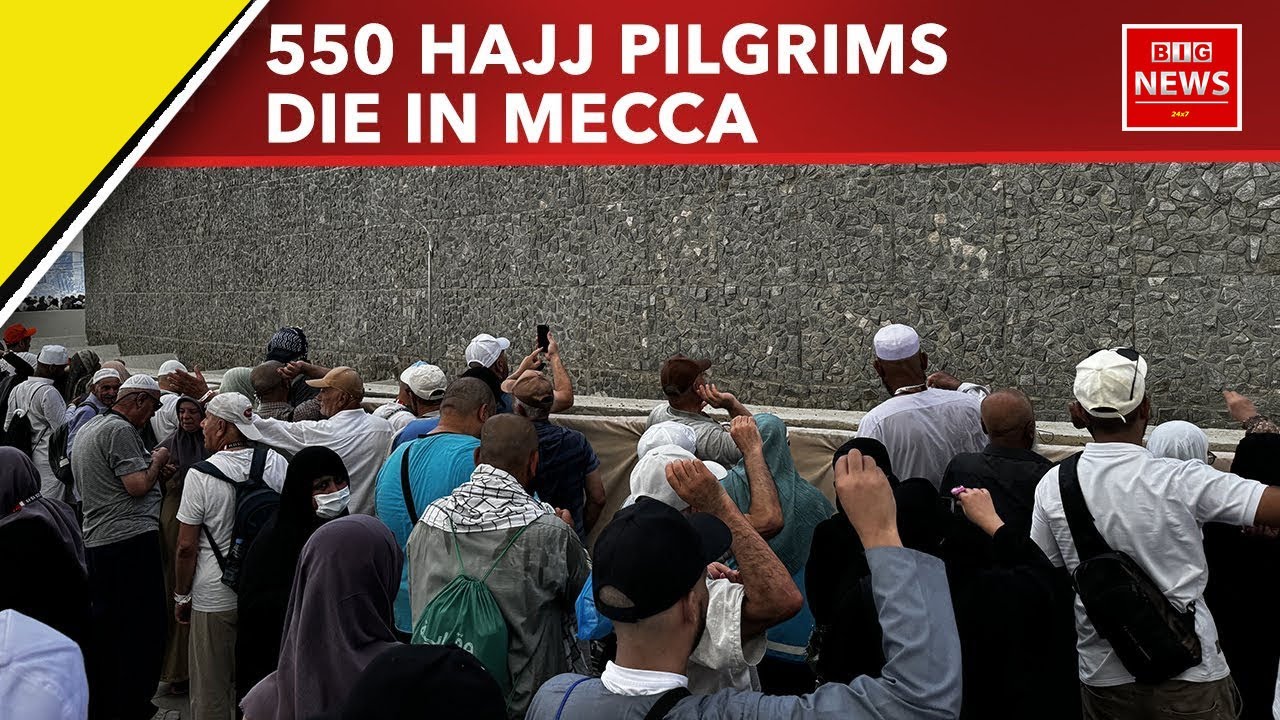The 2024 Hajj pilgrimage has proven particularly grueling, with at least 550 pilgrims losing their lives, highlighting the severe conditions faced by participants. Scorching temperatures were a significant factor, contributing to most of the fatalities.
Heat-Related Deaths Among Pilgrims
Arab diplomats coordinating their countries’ responses reported that 323 of the deceased were Egyptians, the majority succumbing to heat-related illnesses. One Egyptian died due to injuries from a minor crowd crush, while the rest were primarily victims of extreme heat, according to one diplomat, who cited the hospital morgue in Al-Muaisem, Mecca.
Similarly, the number of Jordanian casualties has risen to at least 60, up from the previously reported 41, as per the diplomats’ statements.
Rising Death Toll and Search Operations
The total number of reported deaths from multiple countries has reached 577, based on an AFP tally. The morgue in Al-Muaisem, one of the largest in Mecca, recorded 550 deaths.
Earlier, Egypt’s foreign ministry announced collaboration with Saudi authorities to locate missing Egyptian pilgrims. The ministry acknowledged a certain number of deaths but did not confirm if Egyptians were among them.
Saudi Response to Heat Stress
Saudi authorities have treated over 2,000 pilgrims for heat stress but have not updated these figures since Sunday nor provided comprehensive information on fatalities.
In comparison, 240 pilgrims were reported dead last year, most being Indonesians.
Climate Change Impact on Hajj
The Hajj, one of the five pillars of Islam, mandates all Muslims with the means to undertake it at least once. The pilgrimage is increasingly impacted by climate change, with a Saudi study last month indicating that temperatures in the ritual areas are rising by 0.4°C (0.72°F) each decade. On Monday, temperatures soared to 51.8°C at the Grand Mosque in Mecca.
Measures to Mitigate Heat Effects
Despite Saudi officials advising pilgrims to use umbrellas, stay hydrated, and avoid sun exposure during peak hours, many Hajj rituals necessitate prolonged outdoor activities. Pilgrims in Mina were seen dousing themselves with water and receiving cold drinks and ice cream to combat the heat.
Overwhelmed Services and Unregistered Pilgrims
Reports from Mina described scenes of motionless bodies along roadsides and overwhelmed ambulance services. This year, approximately 1.8 million pilgrims participated in the Hajj, including 1.6 million from abroad.
A significant number of pilgrims perform the Hajj without official visas, to save money, limiting their access to air-conditioned facilities provided by Saudi authorities. One diplomat indicated that the Egyptian death toll was exacerbated by numerous unregistered Egyptian pilgrims.
Earlier this month, Saudi officials reported clearing hundreds of thousands of unregistered pilgrims from Mecca before the Hajj commenced.
Global Impact and Saudi Prestige
Countries including Indonesia, Iran, and Senegal also reported deaths during this year’s Hajj, though most have not specified if these were heat-related.
Hosting the Hajj is a matter of prestige for the Saudi royal family, with King Salman holding the title “Custodian of the Two Holy Mosques” in Mecca and Medina. Despite the deaths, Saudi health minister Fahd bin Abdul Rahman Al-Jalajel stated that health plans for the Hajj were successfully implemented, preventing major disease outbreaks. The Saudi Press Agency reported that a virtual hospital provided over 5,800 consultations, primarily for heat-related illnesses, ensuring prompt medical interventions.
Conclusion
The 2024 Hajj pilgrimage underscores the growing challenges posed by extreme weather conditions and the necessity for continued efforts to ensure the safety and well-being of all pilgrims undertaking this significant religious journey.




